Clonidine is a prescription many doctors prescribe to help lower blood pressure. It is often seen as a safe alternative to other blood pressure medicines but can be fatal if misused. Doctors may also prescribe for anxiety and other mental health disorders. If you or a loved one struggles with clonidine addiction, it may be time to start a substance abuse addiction treatment program.
“Our Rehab Program can Help You Get Off Clonodine by treating the addiction and your co-occurring disorder”
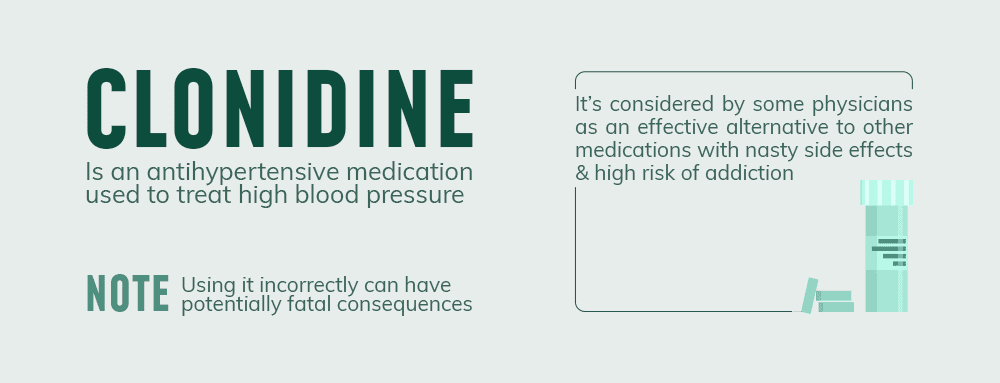
The Basics of Clonidine
With its use in medicine for more than 40 years, clonidine is a type of drug that effectively treats hypertension and mental disorders but may also treat symptoms of menopause. Drug manufacturers often deliver the medicine in immediate-release tablets, extended-release tablets, solutions, or patches.
Clonidine is available in its brand names:
- Catapres
- Kapvay
- Nexiclon

Clonidine and Hypertension
Nearly one in every three American adults has high blood pressure, also known as hypertension. Hypertension can stem from weight gain, stress, lack of exercise, or any number of illnesses.
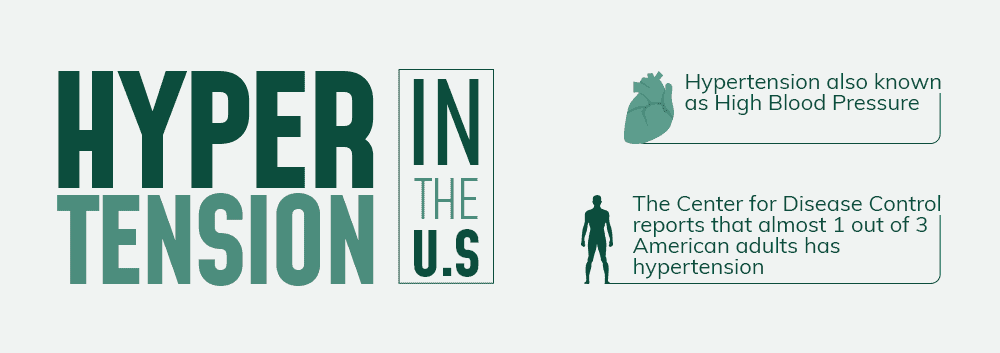
Clonidine helps lower blood pressure by triggering the brain to relax blood vessels, which helps to increase blood flow. This process can also help relax other areas of the brain that may be causing stress, leading many doctors to prescribe clonidine as a sleep aid or anti-anxiety medication.
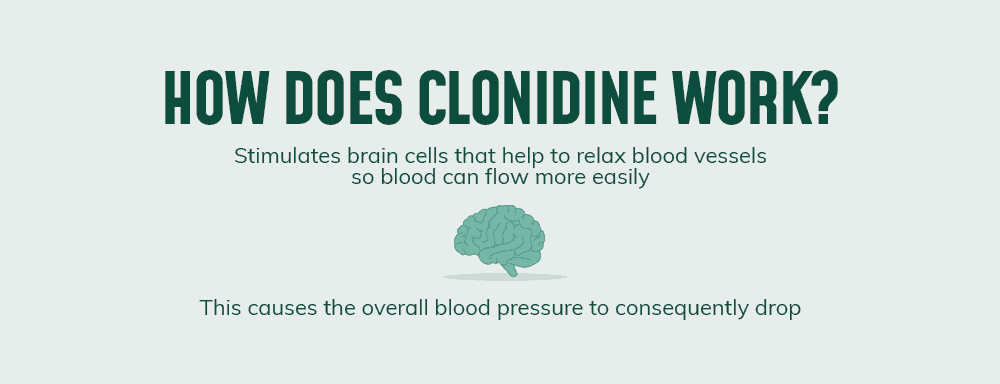
Clonidine Side Effects
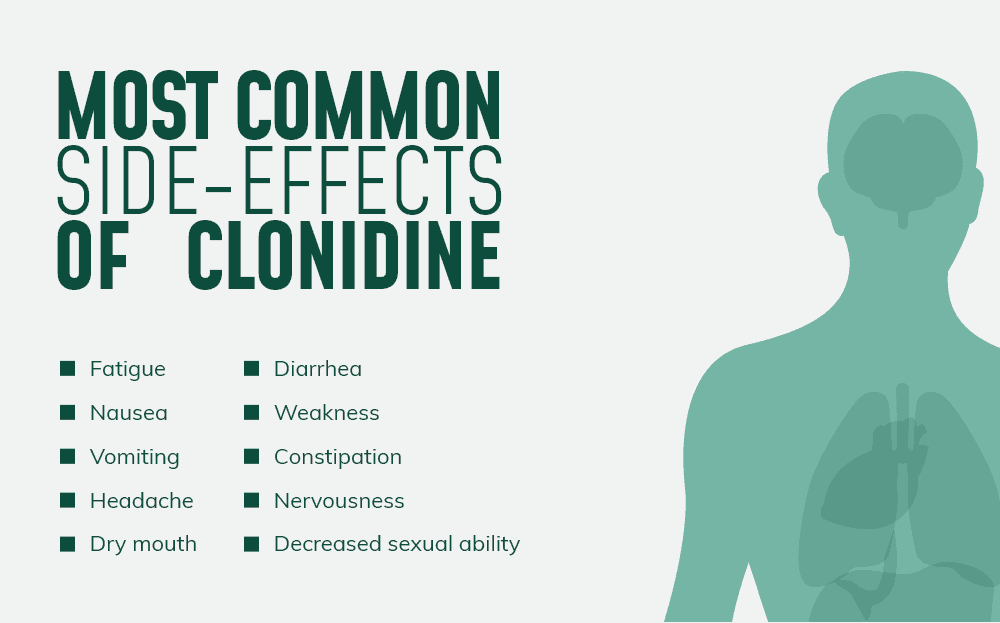
While the side effects of clonidine use aren’t typically severe, patients have reported that they are still noticeable. However, some more severe side effects may arise.
The following side effects need medical attention:
- Hoarseness
- Hives
- Difficulty breathing or swallowing
- Rash
- Swelling of the face, mouth, eyes, hands, lower legs, feet, or ankles
Clonidine Dosages
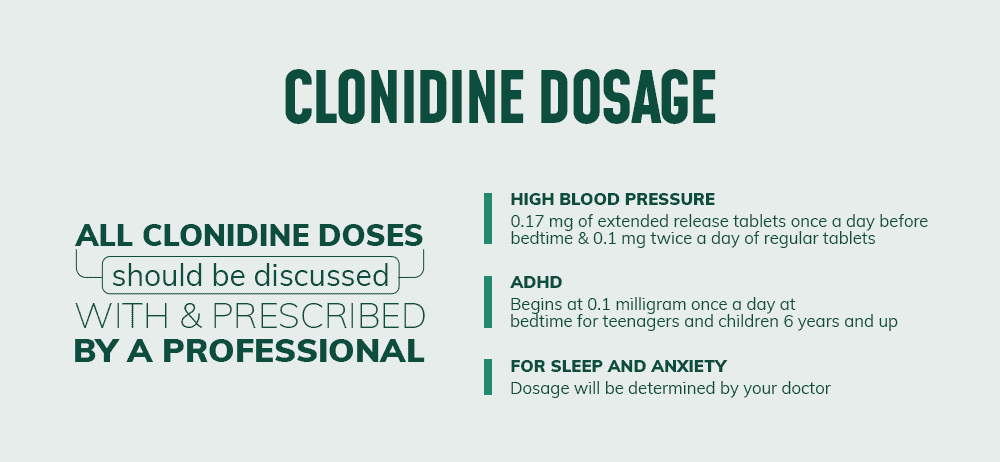
Medical professionals prescribe clonidine in different ways depending on the disease they are treating. Depending on the desired result, they may also prescribe other forms of the drug, like extended-release tablets or patches.
All prescription dosages should be discussed with a health care professional and never self-prescribed.
Signs of Clonidine Abuse
Researchers have found that clonidine boosts and extends an opioid high and the effects of other medications. Since it is often easier to obtain a prescription for clonidine, many people who abuse drugs may seek it out to use.
If you suspect that someone you know is abusing clonidine, watch out for the different signs of abuse. Here are just a few:
- Drowsiness
- Neglecting work or school
- Pale, clammy skin
- Sudden weight loss or gain
- Financial trouble
Clonidine Withdrawal Symptoms
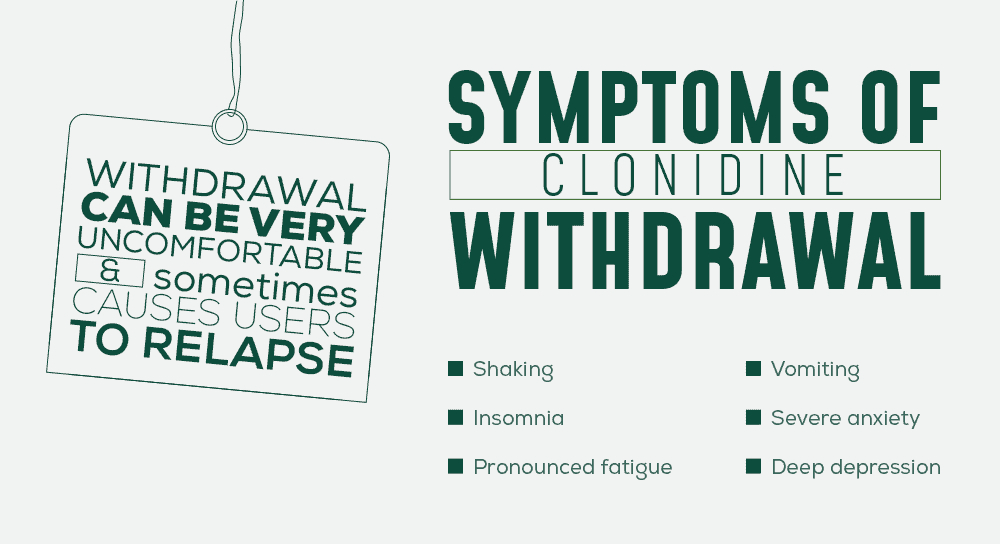
Even though there is little evidence that clonidine creates a physical high, many people still become dependent on it. As with many other substances, the symptoms of clonidine withdrawal can be severe and should be monitored by a medical professional.
Some common symptoms of withdrawal include:
- Vomiting
- Tremors
- Insomnia
- Fatigue
- Anxiety
- Headache
- Depression
Clonidine withdrawal can be quite dangerous, even fatal. As clonidine controls your body’s blood pressure, removing it from your system may trigger an effect called “clonidine rebound.” Clonidine rebound can cause a rapid increase in blood pressure, leading to a cardiac incident and death.
Finding a professional detox and rehab center is the safest way to stop taking a drug. Trained medical staff monitor your symptoms to ensure your recovery is safe and as comfortable as possible.
Clonidine Rehab Treatment at Northpoint Seattle
Even though clonidine is an effective medication for controlling high blood pressure, ADHD, and anxiety, many people abuse it and end up addicted to it. Breaking the cycle of addiction is intimidating and even frustrating.
Finding a professional rehab to help you start your recovery journey can be the step you need to succeed in sobriety. Our clonidine treatment program includes:
- Family therapy
- Group therapy
- Individual therapy
- Dual diagnosis treatment
If you or a loved one is struggling with clonidine addiction, there is no better time to find help than now. We can provide a referral to a valuable detox center to manage withdrawal symptoms before beginning our flexible outpatient program.
Call us at 888.483.6031 today to get started.
What Did you Think About This Blog?
Give it a Rating!


